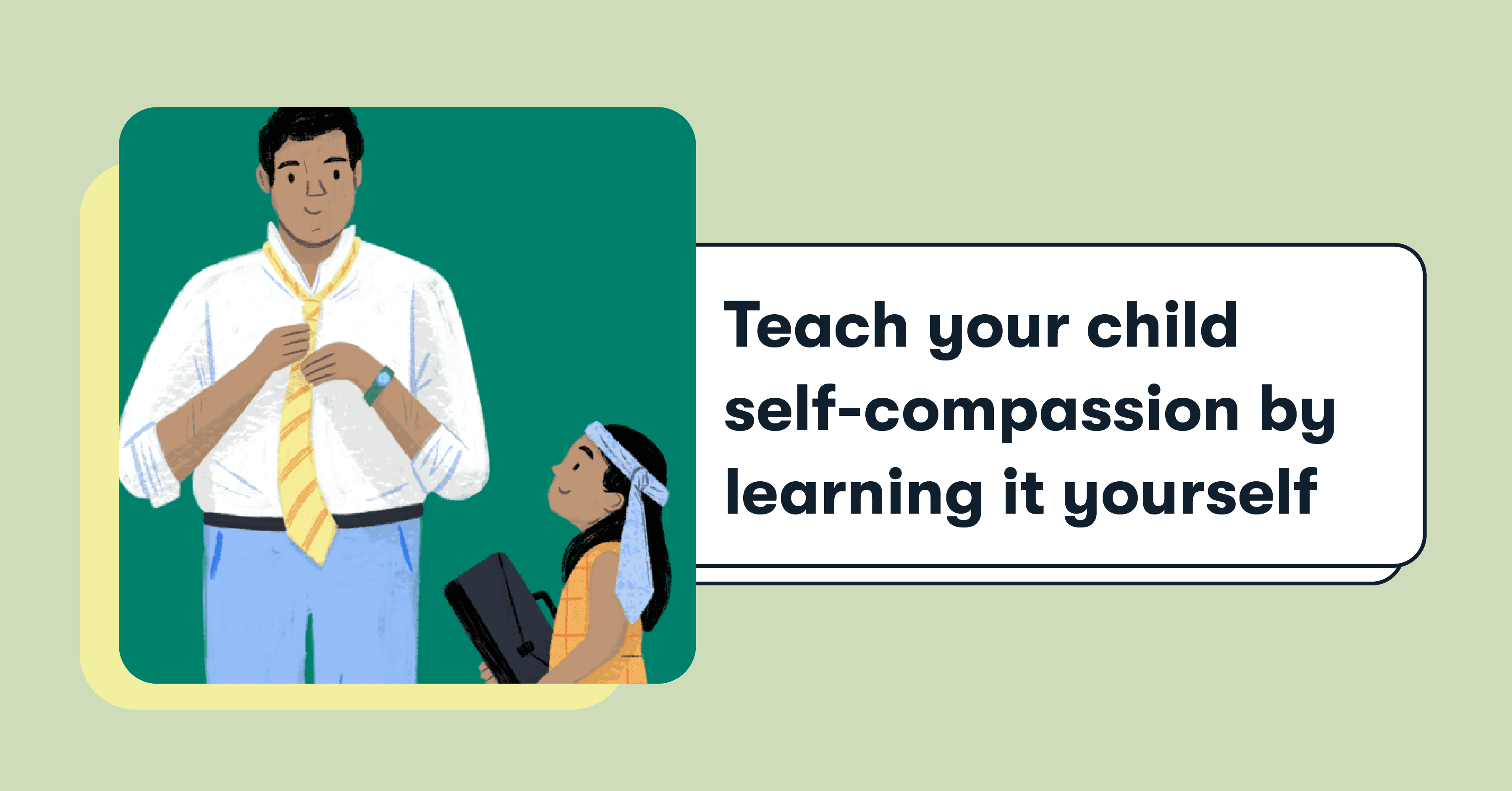Teach your child self-compassion by learning it yourself

By Irene Smith, Jul 21, 2023
Kids are masters of observation. They’ll pick up on — and repeat — both your behavior and your words. To that end, if you can model self-compassion rather than self-criticism, your kid’s mental health will benefit. Here’s how to start.
Acknowledge your feelings
It’s okay to not be okay! If you explain the context to your kid — in an age-appropriate way — you show them how to discuss their feelings in a healthy way. (And if you don’t, your kid may pick up on your mood anyway, and may assume it’s something they did.)
Give thanks
Positivity is a skill, and one way to build it up is through gratitude. Noting what you’re grateful for — even that first cup of coffee in the morning — nudges your brain to look for good things in other parts of your day. Sharing these observations aloud can teach your kid to do the same.
Practice self-care
Self-care shouldn’t be a reward you can only have once you finish all your to-dos. If you try to bring it to the top of the list, your child will learn to care for themselves too. Ask yourself: What makes you feel like the best version of yourself? Do your best to prioritize those things.
Forgive yourself
Self-compassion is key to self-acceptance, so show your kid how it’s done! Focus on progress over perfection. When things go awry — as they always do — point out how you’re doing the best you can and moving forward instead of dwelling on what didn’t go according to plan.
Learn something new
When you take time to try out new experiences and learn new skills, you’re teaching your kid the value of curiosity and a love of learning — not to mention how to be resilient. (You won’t succeed at everything, and that’s okay!) Make a list of new things you’d like to try, then have at it.
Build emotional awareness
Emotions are often held in the body. That’s why you get butterflies when you’re excited or sweaty palms before a meeting. Becoming aware of when and how your emotions show up can help you better understand them. Share these insights with your child and you can work on identifying emotions together.
Troubleshooting
No one expects you to be positive all the time. (And thank goodness, because that sounds exhausting.) Self-love is about being honest and taking care of yourself. If you’re having a bad day, go ahead and call it out! Your kid can learn by watching you get through it.
As helpful as techniques like deep breathing and meditation can be, sometimes you need to address the stressor itself. Once you pinpoint the source of your chronic stress, think about what’s within your control to change. A trusted friend or therapist can help.
Takeaway
Changing your mindset may be a challenge. (It’s so much easier to be hard on yourself!) But when you make an effort to be self-compassionate, your child is more likely to be kind to themselves as well.